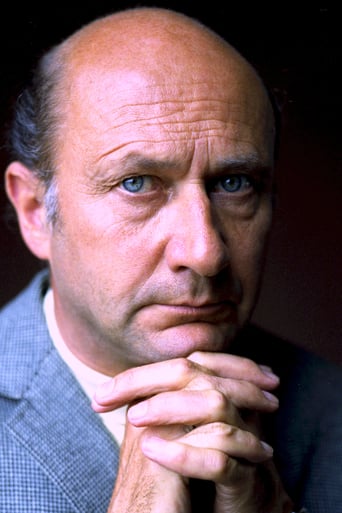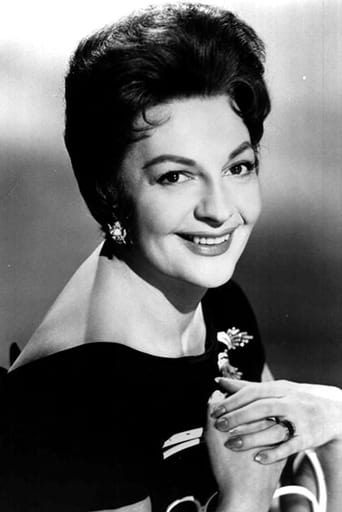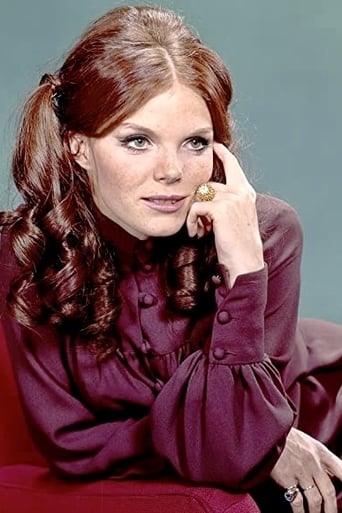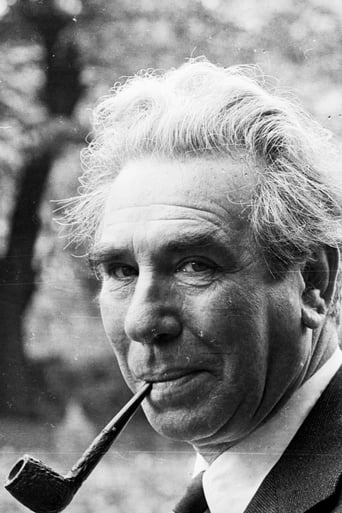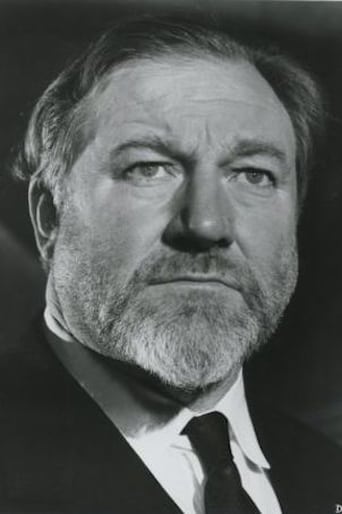ChikPapa
Very disappointed :(
Majorthebys
Charming and brutal
Jenna Walter
The film may be flawed, but its message is not.
Brennan Camacho
Mostly, the movie is committed to the value of a good time.
James Hitchcock
Hawley Harvey Crippen has gone down in history as one of the most notorious murderers in British history, although he was neither a serial killer like Jack the Ripper or the Moors Murderers nor a powerful crime lord like the Kray brothers. He was hanged for the murder of his wife whom he poisoned so that he could be with his attractive, much younger, mistress Ethel Le Neve. There were probably many similar domestic murders in Victorian and Edwardian Britain; what made Crippen so famous was probably his dramatic attempt to escape to his native America with Ethel and the part modern technology (or what was then modern technology) played in their arrest aboard a ship in Canadian waters. (Crippen had been recognised from newspaper photographs by the ship's captain, who telegraphed his suspicions by wireless to Scotland Yard).Mrs Crippen's real name was Kunigunde Mackamotski, but she later changed this to Corrine or Cora Henrietta Turner and also used the stage name Belle Elmore. (She was a music hall artiste). In the film she is always referred to as "Belle", although in private life she seems to have preferred "Cora". Her husband has gone down in history as "Dr Crippen", although this is not strictly correct, as his qualifications from the Cleveland Homeopathic Medical College did not allow him to practise medicine in Britain, where he worked, among other things, as a distributor of patent medicines. In the film, however, it is implied that he is a GP.The film follows the facts of the case fairly closely, although there are occasional divergences; Crippen and Ethel are shown as being tried together but in reality they were tried separately, Ethel's trial taking place after Crippen's had been concluded. (She was charged with being an "accessory after the facts" to murder, so it made sense to hold two separate trials. Had Crippen been acquitted, there would have been no charge for Ethel to answer). Crippen and his wife were both American by birth, but they are played here with British accents; unlike many British film-makers from this period the producers were clearly not interested in bringing in Hollywood stars to increase the film's appeal at the American box-office. Or perhaps they could not find Hollywood stars who were interested in playing a notorious murderer and his shrewish wife.There are two excellent performances from Donald Pleasence as Crippen and Coral Browne as Belle, who combine to provide a striking portrait of a disastrously unsuccessful marriage. Browne plays Belle as a crude, vulgar and sexually promiscuous middle-aged woman, no longer attractive although she may have been so in the past. We get some idea of her character when she sings one of her music hall songs in which she declares that, although she is not a "one-man woman", anyone who loves her must be a "one-woman man", and it is quite obvious that this applies as much to the real Belle as it does to her stage persona. She delights in insulting and humiliating her husband, often in front of friends and acquaintances, and cuckolds him with their lodgers and with her music-hall colleagues. Despite her own infidelities she is offended by her husband's affair with Ethel and by the fact that he no longer wishes to sleep with her- not because she is sexually attracted to him but because she cannot bear the idea of any man not being sexually attracted to the great Belle Elmore. (For some reason, Belle always calls her husband "Peter", but Ethel calls him by his real name, Hawley).Pleasence's Crippen is outwardly a quiet little worm of a man who will meekly accept all the humiliations which his overbearing wife loads upon him, but, as they say, even a worm will turn, and Crippen gradually begins to stand up to Belle's bluster. The one acting contribution I felt was weak came from Samantha Eggar as Ethel, as she did little to suggest just why such a beautiful young woman should have fallen so deeply in love with such an unprepossessing and physically unattractive older man. Although Ethel Le Neve was found not guilty of being an accessory to Belle's murder, I suspect that in real life she was not as sweet and innocent as Eggar makes her seem here.At the end of the film Crippen claims that he did not intend to kill Belle but accidentally gave her an overdose of a sedative he was using (without her knowledge or consent) to calm her aggressive nature. Similar claims have been made on his behalf by commentators on the case, but he never raised this claim at the trial. Perhaps preferred to gamble on the possibility of being acquitted altogether than to raise what would effectively have been a defence of "not guilty to murder, guilty to manslaughter". Although manslaughter did not carry the death penalty, it carried the possibility of a long prison sentence which would have separated Crippen from his beloved Ethel.Unlike most crime movies, films like this one which recreate real-life crimes from the past are not really "thrillers"; most of the audience will be well aware of Crippen's story so his eventual conviction and execution will come as no surprise. Such films can, however, shed light on the underlying pressures and psychological factors which lead to crime. 7/10
Leofwine_draca
DR. CRIPPEN is an effective retelling of a true crime story, bolstered by a typically excellent turn from Donald Pleasence in the titular role. Pleasence makes every facet of his flawed lead his own, and in the end you can truly believe that he is Crippen. He also helps to make Crippen a sympathetic character despite the turn of events that occurs.The format of the film is kept simple and straightforward, with much of the story told in flashback and courtroom drama making up the rest. It feels a little bit staid and ordinary, but Nic Roeg's cinematography at least makes it look good and the cast is decent: Samantha Eggar convinces as the youthful mistress, while Coral Browne is so overbearing that you can't help but sympathise with poor Crippen. A typically fiery Donald Wolfit (BLOOD OF THE VAMPIRE) plays the prosecutor with his usual aplomb.
Robert J. Maxwell
The British seem to have more interesting murderers than America, disregarding the current serial killer mania. The British have Jack the Ripper, Christie and Crippen, and what have we got? Lizzie Borden, and that's all.Crippen was a doctor who, in 1910, poisoned his virago of a horny wife, disarticulated her body, hid it, and ran off with his pretty young secretary, Ethel La Neve.According to this story, Crippen poisoned his wife by accident. La Neve had no idea she was dead and disposed of, believing Crippen's story that the wife had run off to America with one of her many boyfriends. When he comes under suspicion by Scotland Yard, Crippen tries to pull the same stunt. Well -- if you can mismanage an escape, this one is thoroughly bungled. Crippen shaves his mustache and disguises La Neve (played by the succulent and beautiful Samantha Eggar) as a boy. On the ship to America, the deceit is obvious, if for no other reason than that Crippen keeps grabbing his "son's" ass in public. The wireless is put to work and the duo are met by the Canadian police, returned to England, and Crippen gets the noose while La Neve goes free.No one can fault the performances. Donald Pleasance plays Crippen as a henpecked husband who stifles every emotion. Coral Browne is his frowzy, unfastidious wife always importuning her husband to bed her, which he hasn't done in years. (It's pretty frank about these matters.) But Pleasance doesn't seem to have any trouble with Ethel La Neve. Why should he? Not being the right kind of maven I don't know how closely the film hews to the historical record. The framing story is Crippen's trial and there are many flashbacks, sometimes illustrating events the witness could never have seen. The writing is clumsy and the direction pedestrian. It's a bald presentation of the facts, done with what appears to be a limited budget. It's artless. There is no poetry.There could have been an entirely different take on the matter. Ethel La Neve -- Homewrecker. She's Crippen's typist and wears low-cut dresses to work. She seduces Crippen who is, after all, every young lady's dream -- a doctor -- and persuades the smitten doc to get rid of the harridan at home and bury her dismembered corpse in the cellar.Still, there is an adult intelligence at work behind the flavorless presentation of fact and fancy. Every character is given a touch of some humanity, from Crippen the murderer, through his loveless wife, to the corrections officer at the jail before Crippen gets it in the neck. It's too bad that it all comes out rather spiritless.
Coventry
Some of cinema's most fascinating & involving court dramas are inspired by notorious historical cases, and Robert Lynn's masterful Indie-production "Dr. Crippen" is definitely no exception. The factual case of Hawley Harvey Crippen was one of the most talked-about events back in 1910, because he was the first person the police ever arrested with the aid of wireless communication techniques (cleverly processed into the film as well) and - moreover - he was executed despite the fact that it was never fully clarified whether he intentionally murdered his wife or that he accidentally gave her an overdose of medicine. Especially since the true circumstances of Belle Crippen's death remain unknown to this date, the film also remains quite vague about it and only suggests a hypothetical situation of what could have happened. Writer Leigh Vance opted for an ingenious and rather unusual narrative structure in which extended scenes at the courthouse are interfered with extended flashbacks about how the accused got there. The first chapter largely focuses on portraying what type of woman Belle Crippen was. She was an arrogant and selfish woman, openly committing adultery and humiliating her docile husband in public ("you're unattractive, but you're my husband so I guess I have to sleep with you"). The second chapter subsequently depicts Dr. Crippen's sincere affection for the young Ethel Le Neve, who works as an employee in his medical cabinet. Despite Belle having many lovers, she threatens to ruin Crippen's career and reputation if he would choose to leave her for Ethel. The second segment ends on the night of Belle's death. The film's first hour is compelling enough and the case's background is of course essential need-to-know information, but the pacing is rather slow and several sequences appear to be a bit tedious. The last half hour, however, is close to brilliant and literally had me on the edge of my chair. Terrified of the possible consequences, Dr. Crippen convinces his sweet but extremely naive mistress to flee to the United States, disguised as father and son. The alert captain recognizes them and uses the newly invented wireless communication system to inform Scotland Yard about Crippen's whereabouts. The finale is absolutely powerful and unforgettable, handling about the verdict in court and the prison days prior to Dr. Crippen's execution. For as far as I read about the Crippen case in reference books and various websites, this film is very accurate and complete. Even the characterizations are truthful, which actually makes you sympathize with the Dr.'s side of the story, as he and Ethel experience true love whereas Belle is an insufferable battle-axe. On the other hand, if it was just an "accident", how could he bring himself to dismembering his wife's corpse and hide it from the police? As you can tell, this film is extraordinary involving and thought-provoking. Donald Pleasance gives away a tour-de-force performance as the titular character, once again reassuring us he was one of the most talented, but sadly underrated, actors who ever lived. The cinematography is very tight and wondrous, which shouldn't come as a big surprise considering the man responsible was Nicolas Roeg. Very much recommended!
